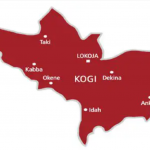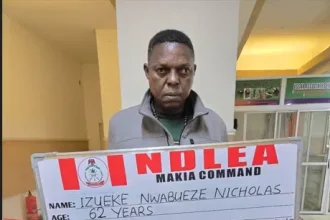The Economic and Financial Crimes Commission has launched investigations into property developers and civil servants suspected of laundering money through real estate projects across Nigeria.
Chairman of the anti-graft agency, Ola Olukoyede, revealed this on Wednesday at a policy dialogue on real estate, organised by Abuja-based law firm, Law Corridor. He disclosed that the EFCC had secured interim forfeiture orders on 15 estates suspected to be funded by stolen public funds.
“What we have been able to find out is that most of these estates are funded by civil servants who have stolen money,” Olukoyede said.
He said many of the properties, located across the country, were left uncompleted and abandoned after their owners lost access to illicit funds.
“We will start visiting all the housing estates, not just in Abuja, but across Nigeria. We want to know who owns what,” he said, adding that some buildings have been deserted for over two decades.
He called for the immediate implementation of the Beneficial Ownership Register to help trace those hiding behind companies and investments.
The EFCC boss also raised concerns about the rising trend of fake developers and illegal agents involved in shady deals. He stressed that money laundering in the sector has become “extremely rampant” and blamed the situation on the lack of affordable funding and outdated land administration systems.
“There is no one who will go to any bank in Nigeria today and borrow money to invest in real estate and make a profit. Real estate development takes time, and if you take a loan at 30 percent interest, how do you survive?” Olukoyede asked.
He advised the government to provide single-digit interest loans for real estate projects and urged a shift from Nigeria’s heavy reliance on cash transactions.
“A thousand EFCCs will not be able to scratch the surface of our corruption problem if we continue with our cash-based economy,” he said.
He also disclosed that some public servants confessed to stealing due to pressure to meet personal or family needs.
“Some will say: ‘Yes, I did it. There is no other way to pay my children’s school fees… please, I am at your mercy.’ At that point, the investigator becomes helpless,” he said.
Olukoyede called on real estate developers to play by the rules, conduct due diligence on clients, and avoid becoming channels for laundering dirty funds.
Also speaking at the event, Nigerian Bar Association President, Afam Osigwe (SAN), and the Director-General of the Bureau of Public Procurement, Adebowale Adedokun, backed calls for reform.
Osigwe said land documentation in Nigeria remains archaic, pointing out that unlike other countries, property ownership cannot be easily verified without a certificate of occupancy.
“I can sit down here and, with the payment of the appropriate fees, confirm the ownership of a property in the United Kingdom. But, I can’t do that here,” he said.
He stressed the need to use technology for seamless verification and monitoring of property deals.
Adedokun noted that public funds are often diverted into real estate projects due to weak procurement systems and poor monitoring.
He said: “The difference between the actual cost of a project and what is reported is what gives people funds to launder. Since they cannot store such funds in banks, they throw the money into poorly regulated real estate.”











